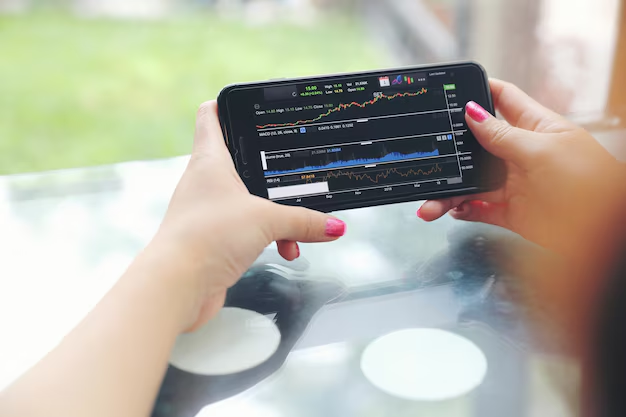Is Webull the Right Trading Platform for You?
In the dynamic world of online trading, choosing the right platform can significantly impact your success as an investor. Webull, known for its sleek user interface and zero-commission trading, has gained popularity among both novice and seasoned investors. But is it the right trading platform for you? This comprehensive guide dives deep into Webull, exploring its features, benefits, and potential drawbacks, to help you make an informed decision.
Understanding Webull: The Basics
Webull is an online brokerage platform launched in 2017, offering commission-free trading for stocks, options, and ETFs. It stands out for its intuitive design and robust analytics tools, catering to tech-savvy individuals seeking a more sophisticated trading experience.
Key Features of Webull
- Commission-Free Trading: Webull's zero-commission trades make it attractive for those who want to invest without incurring hefty fees.
- Comprehensive Analytical Tools: The platform offers various technical indicators, advanced charting options, and market data to support informed decision-making.
- User-Friendly Interface: With a sleek and modern design, Webull ensures ease of use, even for trading newcomers.
- Extended Trading Hours: Webull provides pre-market and after-hours trading, offering more flexibility for investors.
- Paper Trading: This feature allows users to practice trading without risking real money—a great way to build skills and confidence.
Pros and Cons of Using Webull
When deciding if Webull is right for you, weighing the pros and cons is crucial.
Advantages of Webull
- Cost-Effective: With no commission fees, Webull is a cost-effective option for frequent traders.
- Advanced Tools: Its comprehensive analytics make it suitable for more advanced traders seeking detailed market insights.
- Accessibility: The platform is accessible via desktop or mobile app, allowing for trades on the go.
Disadvantages of Webull
- Limited Financial Products: Unlike some competitors, Webull does not offer mutual funds or bonds, which may limit diversification strategies.
- No Cryptocurrency Trading: As of now, Webull does not support direct cryptocurrency trading, which could be a limitation for crypto enthusiasts.
- Learning Curve: While intuitive, the platform's advanced tools might be overwhelming for absolute beginners.
Who Should Consider Using Webull?
Webull is well-suited for tech-savvy investors, active traders, and anyone interested in leveraging detailed analytics for trading decisions. It is particularly beneficial for:
- Cost-Conscious Investors: Those looking to minimize fees while accessing advanced trading tools.
- Tech Enthusiasts: Individuals who appreciate a seamless and modern trading interface.
- Experienced Traders: Investors who can benefit from Webull's technical analysis tools to enhance their trading strategies.
Is Webull Beginner-Friendly?
While Webull offers numerous advanced features, it may pose a challenge for some beginners due to the sheer amount of data and tools available. However, its paper trading option provides a safe space for newcomers to practice and learn without financial risk.
Webull vs. Other Trading Platforms
Understanding how Webull compares to other platforms is key to making the best choice for your trading needs.
Commission-Free Trading: A Standard Practice?
In recent years, many leading trading platforms have adopted a commission-free model, making Webull's standout feature not as unique as it once was. However, its robust analytical tools and seamless interface continue to give it a competitive edge.
Platform-Specific Comparisons
- Robinhood: Both platforms offer commission-free trades, but Webull provides more advanced charting tools and extended trading hours.
- E*TRADE: While E*TRADE offers a broader range of investment products, Webull's platform is more focused on active, technical traders.
- TD Ameritrade: Known for its educational resources, TD Ameritrade may be more appealing to beginners, whereas Webull caters to those ready to delve deeper into technical analysis.
Getting Started with Webull
If Webull seems a fit for your investment style, getting started is straightforward.
Steps to Open an Account
- Download the App: Available on both Android and iOS, start by downloading the Webull app or access it via the web.
- Account Registration: Create your account by providing basic information and verifying your identity.
- Initial Deposit: While there is no minimum deposit to create an account, a deposit is necessary to start trading.
- Explore the Platform: Utilize paper trading to familiarize yourself with the tools and interface before investing real money.
Tips for Effective Trading on Webull
- Leverage Paper Trading: Use this feature to hone your skills without financial risk.
- Utilize Alerts: Set up alerts and notifications to stay updated on market changes and stock performance.
- Engage with Community Features: Webull offers a social platform for learning from other investors and sharing trading ideas.
Practical Tips and Takeaways
Here's a concise summary of practical tips for using Webull effectively:
🚀 Key Takeaways
- Zero Commissions: Enjoy cost-effective trading without hidden fees.
- Practice Makes Perfect: Use paper trading to learn the ropes.
- Stay Informed: Leverage its analytical tools for better insights.
- Consider Your Needs: Match Webull's offerings with your investment goals.
- Explore with Caution: Ideal for tech-savvy and seasoned traders.
Conclusion
Webull offers a powerful combination of cost-efficiency, advanced tools, and user-friendly design, making it a compelling choice for active traders and tech-savvy investors. While it may present a learning curve for beginners, its features enable strategic growth for those ready to engage deeply with their trading strategies. As with any platform, evaluating it against your personal goals and preferences is essential to determining if Webull is the right fit for your trading journey.

Related Topics
- Can a Minor Use Webull
- Can I Buy Crypto On Webull
- Can I Day Trade On Webull
- Can I Trade Forex On Webull
- Can I Trade Futures On Webull
- Can Think Or Swim Place Option Order From Webull
- Can Tradingview Place Option Order From Webull
- Can You Buy Crypto On Webull
- Can You Buy Fractional Shares On Webull
- Can You Day Trade On Webull
